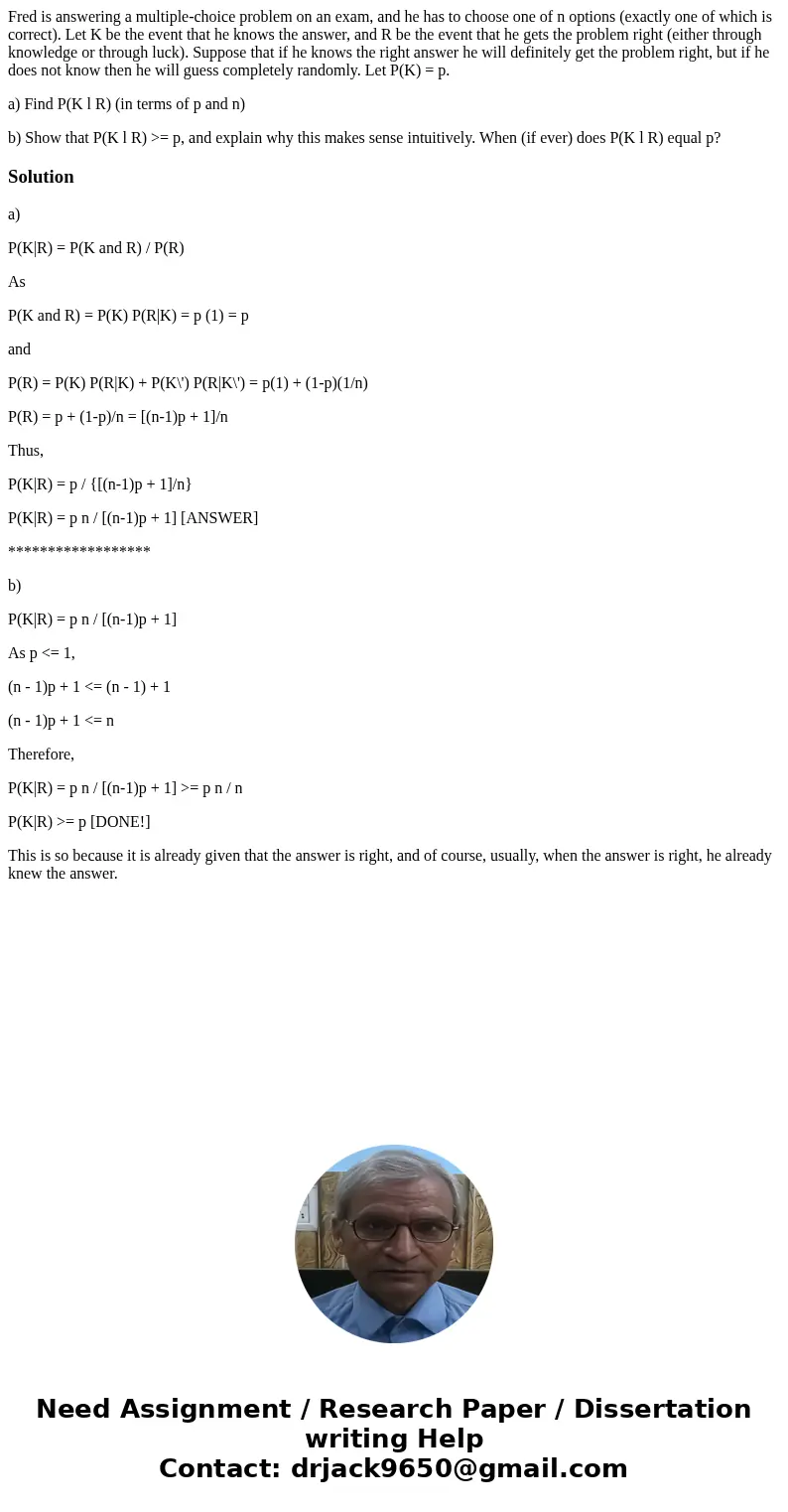Fred is answering a multiplechoice problem on an exam and he
Fred is answering a multiple-choice problem on an exam, and he has to choose one of n options (exactly one of which is correct). Let K be the event that he knows the answer, and R be the event that he gets the problem right (either through knowledge or through luck). Suppose that if he knows the right answer he will definitely get the problem right, but if he does not know then he will guess completely randomly. Let P(K) = p.
a) Find P(K l R) (in terms of p and n)
b) Show that P(K l R) >= p, and explain why this makes sense intuitively. When (if ever) does P(K l R) equal p?
Solution
a)
P(K|R) = P(K and R) / P(R)
As
P(K and R) = P(K) P(R|K) = p (1) = p
and
P(R) = P(K) P(R|K) + P(K\') P(R|K\') = p(1) + (1-p)(1/n)
P(R) = p + (1-p)/n = [(n-1)p + 1]/n
Thus,
P(K|R) = p / {[(n-1)p + 1]/n}
P(K|R) = p n / [(n-1)p + 1] [ANSWER]
******************
b)
P(K|R) = p n / [(n-1)p + 1]
As p <= 1,
(n - 1)p + 1 <= (n - 1) + 1
(n - 1)p + 1 <= n
Therefore,
P(K|R) = p n / [(n-1)p + 1] >= p n / n
P(K|R) >= p [DONE!]
This is so because it is already given that the answer is right, and of course, usually, when the answer is right, he already knew the answer.

 Homework Sourse
Homework Sourse